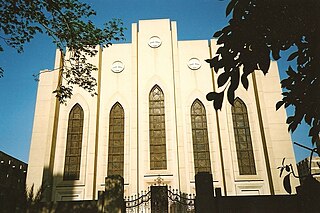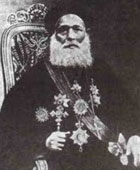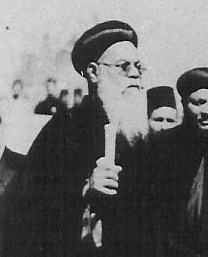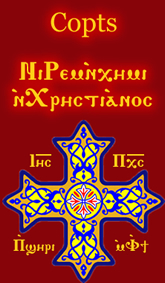The Coptic Theological Seminary is an institution of the Coptic Orthodox Church of Alexandria based in Cairo and with branches and affiliated seminaries throughout the world. [1] The Seminary claims historical continuity with the historic Catechetical School of Alexandria of the 2nd and 3rd centuries, and regards the 1893 establishment as a reestablishment of this school.[ citation needed ]

The Coptic Orthodox Church of Alexandria is an Oriental Orthodox Christian church based in Egypt, Africa and the Middle East. The head of the Church and the See of Alexandria is the Patriarch of Alexandria on the Holy See of Saint Mark, who also carries the title of Coptic Pope. The See of Alexandria is titular, and today the Coptic Pope presides from Saint Mark's Coptic Orthodox Cathedral in the Abbassia District in Cairo. The church follows the Alexandrian Rite for its liturgy, prayer and devotional patrimony. With 18–22 million members worldwide, whereof about 15 to 20 million are in Egypt, it is the country's largest Christian church.
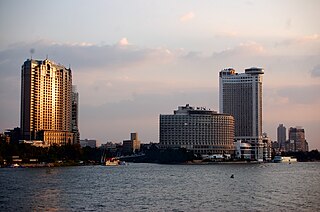
Cairo is the capital of Egypt. The city's metropolitan area is one of the largest in Africa, the largest in the Middle East, and the 15th-largest in the world, and is associated with ancient Egypt, as the famous Giza pyramid complex and the ancient city of Memphis are located in its geographical area. Located near the Nile Delta, modern Cairo was founded in 969 CE by the Fatimid dynasty, but the land composing the present-day city was the site of ancient national capitals whose remnants remain visible in parts of Old Cairo. Cairo has long been a centre of the region's political and cultural life, and is titled "the city of a thousand minarets" for its preponderance of Islamic architecture. Cairo is considered a World City with a "Beta +" classification according to GaWC.

The Catechetical School of Alexandria was a school of Christian theologians and priests in Alexandria. The teachers and students of the school were influential in many of the early theological controversies of the Christian church. It was one of the two major centers of the study of biblical exegesis and theology during Late Antiquity, the other being the School of Antioch.
Directors of the Coptic Theological Seminary in Cairo include Yusuf Manqariyus from 1893 to 1918, Habib Girgis. [2] [3] Graduates include Pope Shenouda III of Alexandria. [4]

Archdeacon Habib Qozman Mankarious Girgis was a modern-day dean of the Catechetical School of Alexandria.

Pope Shenouda III was the 117th Pope of Alexandria and Patriarch of the See of St. Mark. His episcopate lasted 40 years, 4 months, and 4 days from 14 November 1971 until his death on 17 March 2012.



